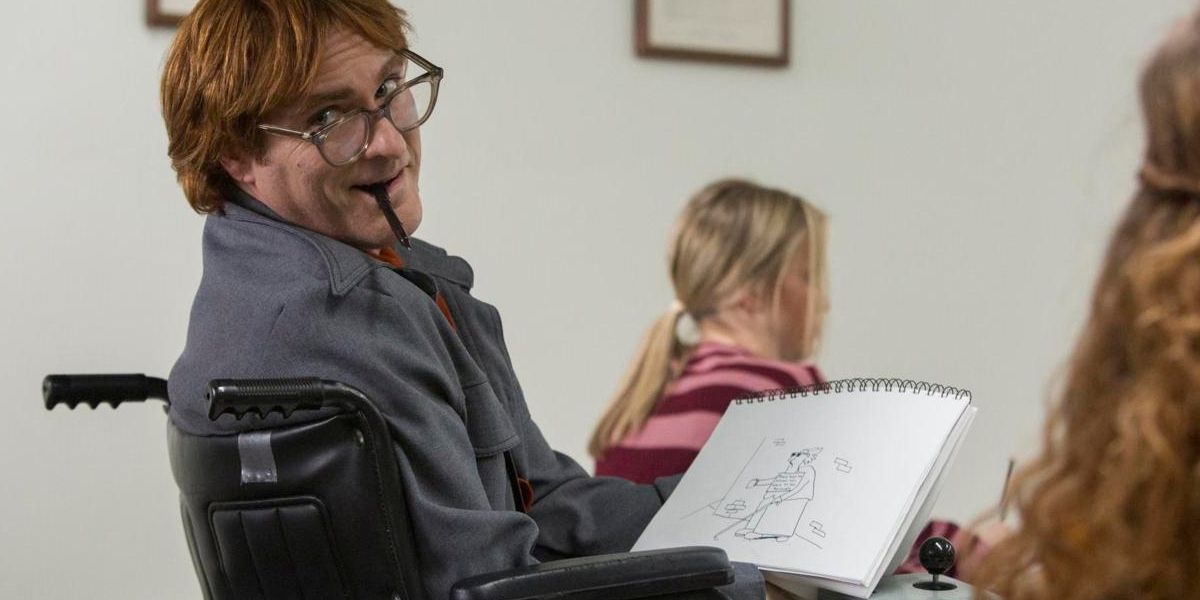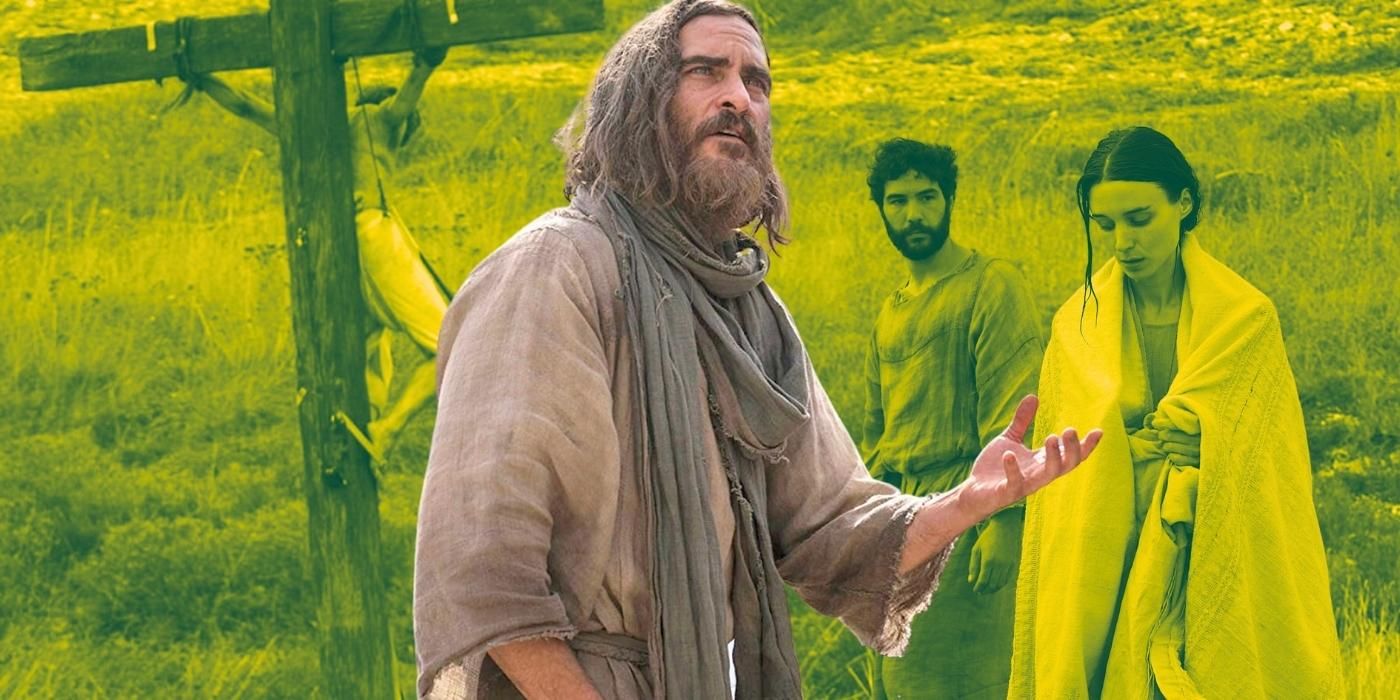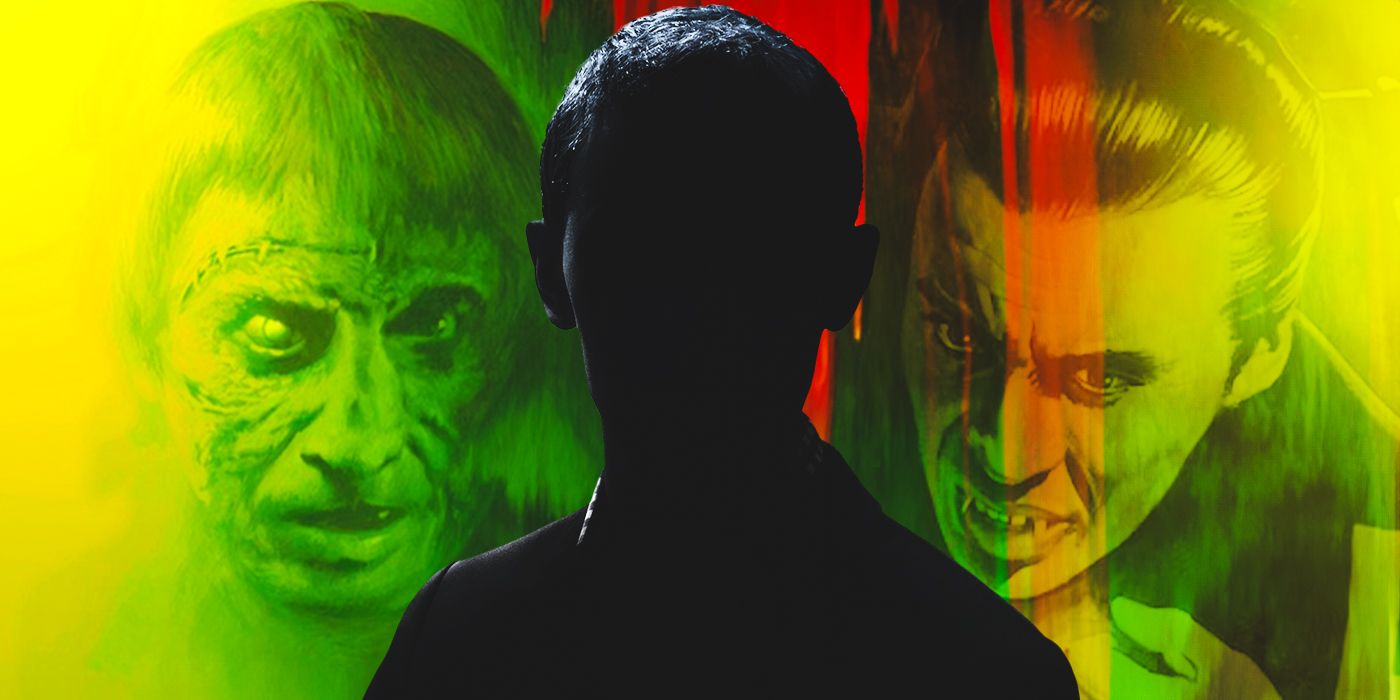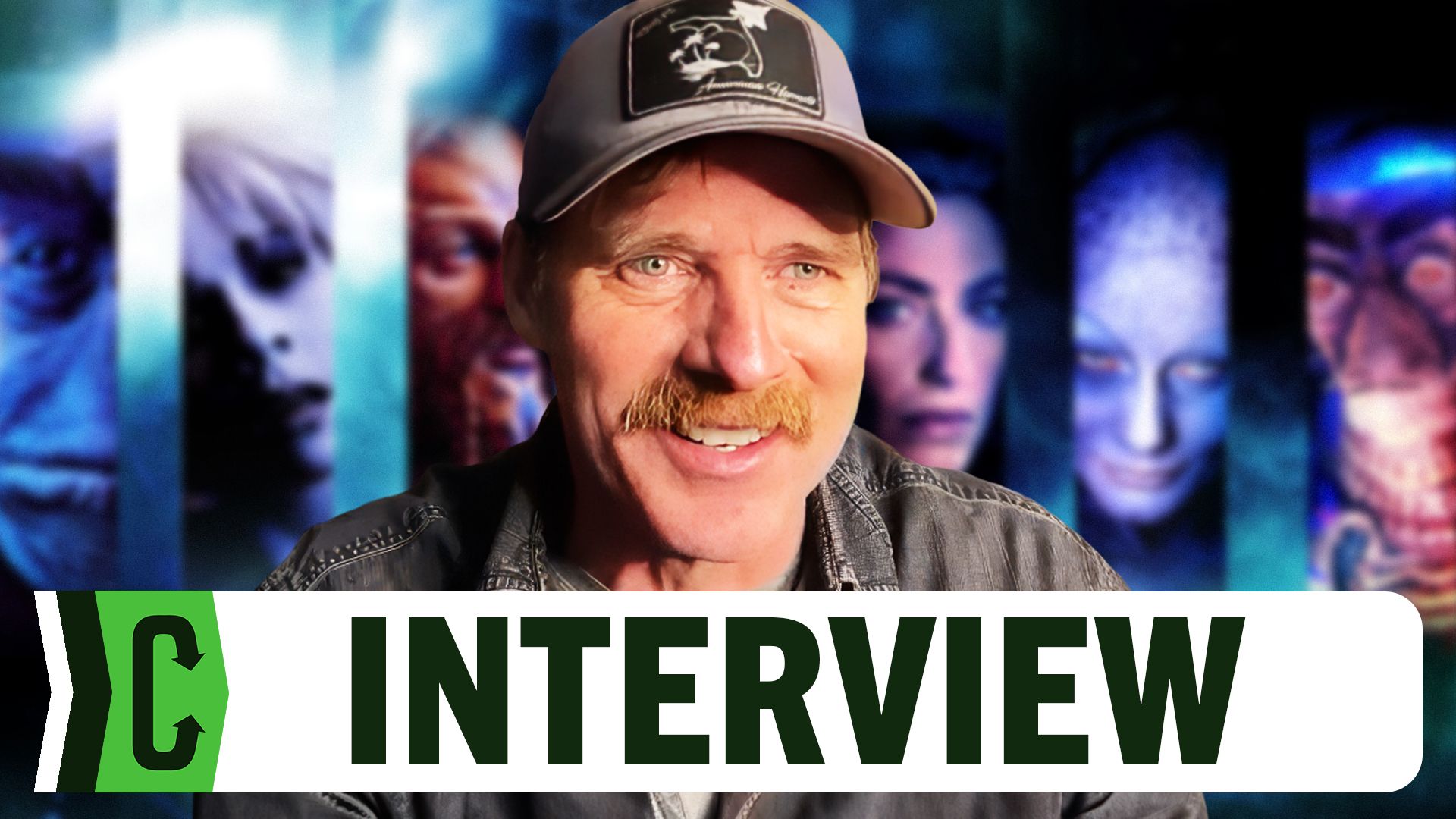The Big Picture
- Joaquin Phoenix’s performances are bold and inspire strong opinions, making him an interesting actor to talk about.
- Phoenix’s recent performances, including in films like The Master and Her, showcase a sense of eccentricity and disassociation.
- These performances capture the tragic psychology of existing in different eras and reflect the theme of American disassociation.
Joaquin Phoenix is not a man whose performances inspire a shrug. Whether he’s impersonating an actor opting for a radical career change on David Letterman’s talk show, being the villain of Gladiator, or depicting the origins of The Joker, Phoenix is someone whose bold swings as a performer are bound to inspire strong opinions. Not all of his performances are going to be universally beloved or interpreted in the same fashion, but that’s what makes his works as an actor so interesting to talk about. Another trait that’s come to define some of his most recent performances, especially in the wake of Joker, is a sense of eccentricity.
Subsequent Phoenix titles like Beau is Afraid or Napoleon were full of oddball flourishes, like Phoenix portraying the former film’s protagonist at different ages or the actor snorting like a hog under a dinner table in the latter feature, that leaned into Phoenix’s new star persona as an arthouse weirdo. Phoenix’s modern star persona is based on audacious gambits built on making people tilt their heads in uncertainty. That’s a reductive view undeniably of his layered work as an actor, but when you star in a $1+ billion hit movie as The Joker, you’re bound to garner a reputation for playing “weirdos”. However, the greatest stretch of Phoenix’s career came through performances that relied not on eccentricities, but a sense of disassociation. From 2012 to 2014, Phoenix re-established himself as an acting titan through performances tragically built on the bedrock of societal isolation.
The Master
A Naval veteran arrives home from war unsettled and uncertain of his future – until he is tantalized by the Cause and its charismatic leader.
- Release Date
- September 7, 2012
- Director
- Paul Thomas Anderson
- Cast
- Joaquin Phoenix , Price Carson , Mike Howard , Sarah Shoshana David , Bruce Goodchild , Matt Hering
- Runtime
- 137
- Main Genre
- Drama
- Writers
- Paul Thomas Anderson
- Tagline
- Written and directed by Paul Thomas Anderson
What Movies Did Joaquin Phoenix’s Best Performances Come From?
After taking a detour and faux retirement for the mockumentary I’m Still Here, Joaquin Phoenix needed to reaffirm that he still had the chops as an actor at the dawn of the 2010s. Save for his 2009 feature Two Lovers, he hadn’t appeared in a narrative movie since Reservation Road in 2007. He would finally reappear on the big screen in 2012 with The Master. That union with director Paul Thomas Anderson kicked off a string of four consecutive performances that not only brought Phoenix roaring back to life as an actor but also delivered some of his strongest work as an actor. Right away, Phoenix displayed a gift for portraying folks disassociated from the larger world with his portrayal of Freddie Quell in The Master.
The Master takes place in the aftermath of World War II, a global conflict Quell fought in and suffered deep psychological trauma from. In his attempts to readjust to society, Quell proves a failure. His job as a store photographer goes up in smoke after he tries to strangle a customer while his attempts to start up a homemade moonshine business leave one customer inadvertently poisoned. Quell was trained to murder others by the American government. Now he’s been asked to return to civilian life and finds those violent urges spilling over (even subconsciously) into his routine existence. This psychology makes Quell a perfect subject of fascination for Lancaster Dodd (Phillip Seymour Hoffman), the leader of a new philosophical movement called The Cause.

Joaquin Phoenix’s Most Underrated Performance Is in This Moving Biopic
Phoenix turned ‘Don’t Worry, He Won’t Get Far On Foot’ into a hilarious, yet surprisingly moving exploration of the healing process.
There’s an aching loneliness behind Phoenix’s face in every inch of his screen time in The Master, a loneliness that Quell never seems to fully comprehend. He is a pariah from society, a man seeped in tragedy as he clings to the hope that the fraudulent teachings of The Cause can bring him mental salvation. Phoenix’s performance as Quell is full of unorthodox touches, but a sense of emotional emptiness defines this performance more than anything else. Quell is a frazzled shell of a man, a husk of a being. He’s an aimless soul, chewed up and spit out by his own country and existing long before the proper medicine or rhetoric exists to treat his psychological woes. His uncertainty over his purpose or future mental stability defines the free-flowing structure of The Master. This is a man drained of consistency, a quality vividly realized in the hands of Phoenix.
If Quell’s disassociation is defined by being unable to put a name to his woes, Phoenix’s work at conveying the isolation of Theodore Twombley in Her proves riveting because the character is conscious of where his internal pain originates. This is a man reeling from heartache. Whereas Quell hides in the bottom of ships or makes sand carvings of nude women alone on the beach, the persistently lonely Twombley is often surrounded by hordes of people. He exists in mainstream society, he’s always reminded that he’s not alone…yet he feels like he’s experienced every emotion existence has to offer. His disassociation is a unique flavor of tragedy compared to Quell’s, but it’s one Phoenix handles with equal levels of commitment and depth. Whereas Phoenix’s portrayal of Quell’s dissociation encapsulated how aimless America was in the wake of World War II, Twombley’s aching loneliness captures the tragic psychology of existing in an age of endless technology. You can have endless tools past generations only could dream of yet still feel so devastatingly separated from everyone else. By grounding characters like Quell and Twombley in such era-specific details and themes, the realism of Phoenix’s performances is astonishing, even when, in movies like Her, he’s inhabiting eras that haven’t even occurred yet!
Joaquin Phoenix Excels in Both Dramas and Comedies
Directly following his work in The Master and Her, Joaquin Phoenix was tasked with playing Bruno Weiss, a man who looms over American immigrant Ewa (Marion Cotillard) in James Gray’s The Immigrant. Unlike in those two earlier films, Phoenix is firmly a supporting player here, though like his work as Quell and Twombley, Phoenix’s turn as Weiss says something about American society. In this case, Weiss is a man who exudes control over Ewa and the other sex workers he forcibly employs. He’s a man on the fringes of society who wants to be in control, as seen by his relentless romantic advances towards Ewa. However, this mentality is at odds with the reality that he’s just a speck on the map of society to those in power.
Experiences like getting beat up by the cops should, in theory, force Weiss to realize that he’s at the same level as Ewa and should help her. Instead, upfront knowledge of America’s inequality only leads him to want power so that he can make others miserable. He wants to perpetuate a cycle of toxic abuse to help conceal his innate powerlessness. Within Weiss, Phoenix crafts a performance that encapsulates how America keeps folks of lower economic statuses fighting amongst each other. Specifically, Weiss encapsulates poor whites who’d rather be poor and above others than poor and in solidarity with other oppressed communities. This pursuit of power leads to a frightening dissociation from reality, with Phoenix never losing sight of subtly portraying the vulnerable physicality of a man who believes he’s a master gangster or a king.

Remember When Joaquin Phoenix Played Jesus?
It’s a much different role for the ‘Joker’ star.
Those weighty ideas in The Immigrant, The Master, and Her would make the wacky Inherent Vice seemingly the perfect palette cleanser for Phoenix. To be sure, this title does allow Phoenix to channel his funny bone, with the actor lending as much commitment to silly line deliveries and bursts of slapstick as he does to his darker characters in something like You Were Never Really Here. Yet, throughout Inherent Vice, there is an undercurrent of melancholy that allows Phoenix to channel his gift for portraying disassociation. Phoenix’s character, private detective Larry “Doc” Sportello, often wistfully recalls the wonderful times he spent with his ex-girlfriend Shasta Fay Hepworth (Katharine Waterston). Moments like getting caught out in the rain that seemed so inconvenient at the moment now resonate as relics of a bygone era.
Director Paul Thomas Anderson has Sportello always on the cusp of realizing yet never fully grasping that those past connections can never be fully recaptured. Between his fixation on halcyon memories of the past and constant drug use, Sportello is always dissociated from the “real world,” a realm that is only going to get more complicated in the future. After all, Inherent Vice takes place in 1970, just before the Watergate Scandal breaks loose and forever tarnishes people’s faith in American institutions. The complications in this country that always existed are about to become inescapable. Phoenix’s performance as Sportello is amusing, but there’s also a tragedy to this guy who’s at the mercy of an unsalvageable past and an overwhelming future he cannot comprehend. Within Phoenix’s stoned eyes, one can see a figure hopelessly outmatched by the world around him. That’s a perfect recipe for a comedic protagonist, but it’s also a great description for another remarkably disassociated Joaquin Phoenix protagonist.
How Does Joaquin Phoenix Make His Similar Characters Feel Different?
Individually, each of these four consecutive Joquin Phoenix performances is an impressive creation. Taken together, though, they form a fascinating cinematic chain. Phoenix is portraying men disassociated with reality in various ways across each of these movies yet none of them feel derivative of the other. Freddie Quell is a radically different creation from Doc Sportello, and he’s an entirely different beast from Theodore Twombley. Phoenix is a master at finding the smallest details that make these disassociated characters wholly different creations.
In hindsight, though, each of these four figures is a tragic reflection of what it means to be lost and adrift in America. In The Master, Phoenix captures an aimless soul unsure of how to even exist in the wake of World War II. Her saw the actor portraying an aching human who still feels so lonely in an age of technology designed to ensure you’re never alone. The Immigrant was all about how a country built on immigrants creates systems that leave those same people vulnerable and antagonistic to one another. Finally, Inherent Vice is a bittersweet ode to the past fixated on a man who is always out of the loop in the present. None of these figures fit into America, a reality captured in wildly varying decades and through richly lived-in performances from Phoenix.
Few actors can capture internal pain like Joaquin Phoenix. All he has to do is stand in a certain way in The Master or The Immigrant and you can feel the years of turmoil informing every single move of his characters. His gifts in that department and so many other areas are beautifully realized in these four performances, which leave one contemplating the larger world and Phoenix’s talents as an artist with equal layers of frenzied obsession. Phoenix’s modern publicity persona is one built on eccentric traits and dedication to method acting. However, it should be centered on performances like the ones given between 2012 and 2014 that so vividly channeled distinctly American disassociation.
Her is available to stream on Max in the U.S.
Watch on Max





